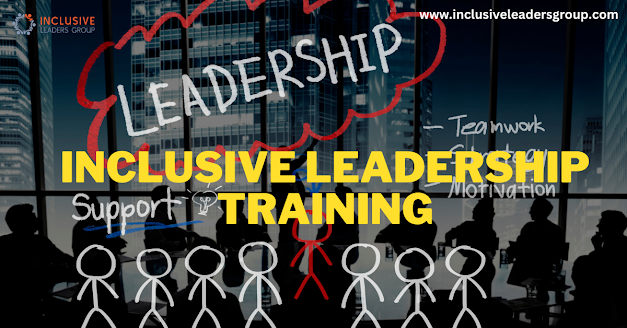The Benefits of Inclusive Leadership Training: ILG
In today’s rapidly evolving workplace landscape, inclusive leadership has emerged as a critical component for success. Companies are increasingly recognizing the value of diversity and inclusion (D&I) in fostering innovation, improving decision-making, and enhancing employee morale. To harness these benefits, organizations are investing in inclusive leadership training. In this article, we will delve into the world of inclusive leadership training, exploring its significance, key components, and the transformative impact it can have on both individuals and businesses.

Understanding Inclusive Leadership
Defining Inclusive Leadership
Inclusive leadership is a leadership approach that goes beyond simply acknowledging diversity; it actively seeks to create an environment where every individual feels valued, heard, and empowered. It fosters a culture of inclusivity where differences are celebrated and leveraged for better outcomes.
The Importance of Inclusive Leadership
Inclusive leadership is vital in today’s multicultural and globalized world. It encourages collaboration, creativity, and a sense of belonging among employees. When leaders embrace inclusivity, they set an example for their teams, promoting fairness, equity, and respect.
Benefits of Inclusive Leadership Training
Building Awareness
Inclusive leadership training begins with building awareness about unconscious biases and prejudices. Participants learn to recognize their own biases and understand how these biases can affect decision-making and interactions.
Effective Communication
Communication plays a pivotal role in inclusive leadership. Training programs focus on teaching leaders how to communicate effectively with diverse teams, fostering an open and inclusive dialogue.
Conflict Resolution
Inclusive leaders are equipped with the skills to resolve conflicts in a constructive manner, promoting a harmonious work environment.
Enhanced Decision-Making
Diverse teams tend to make better decisions. Inclusive leadership training teaches leaders how to harness the diverse perspectives of their teams to make informed and innovative choices.
The Components of Inclusive Leadership Training
Self-Awareness
Before leading others, leaders must first understand themselves. Inclusive leadership training often starts with self-assessment and reflection.
Cultural Competence
Understanding different cultures and backgrounds is crucial for inclusive leaders. Training programs provide insights into various cultural norms and values.
Empathy and Active Listening
Empathy and active listening are at the core of inclusive leadership. Leaders are taught to genuinely connect with their team members and understand their experiences.
Implementing Inclusive Leadership in the Workplace
Setting Inclusive Policies
Organizations must establish policies that promote diversity and inclusion. Leaders play a pivotal role in advocating for and implementing these policies.
Leading by Example
Inclusive leaders set the tone for their teams by embracing diversity in their leadership style and decision-making.
Continuous Learning
Inclusive leadership is an ongoing journey. Leaders should continuously seek opportunities to learn and grow in their inclusive leadership skills.
Transformative Impact of Inclusive Leadership
Inclusive leadership is not just a buzzword; it yields tangible results. Companies that invest in inclusive leadership training experience increased employee engagement, reduced turnover, and improved innovation. Moreover, they tend to be more competitive in the global marketplace.



Comments
Post a Comment